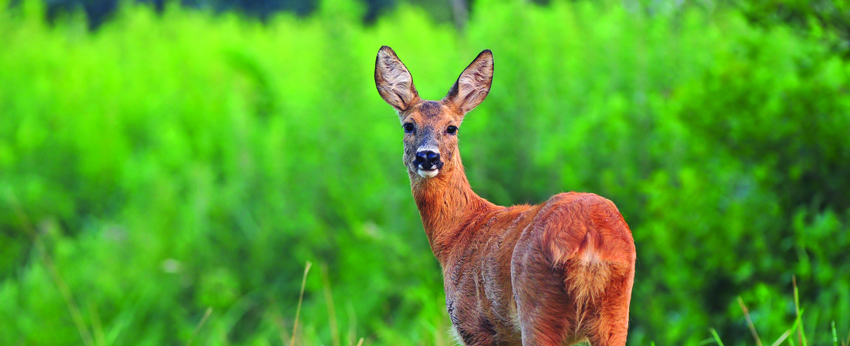The UK’s deer population is believed to be at its highest level for 1,000 years, with some two million deer in our countryside and semi-urban areas. A growing deer population with no natural predator puts more browsing pressure on woodland ground flora through their consumption of tree shoots, shrubs and woody vegetation that sequester carbon. Increased wild deer management is essential if we are to protect existing woodland and newly planted saplings, meet England’s tree planting targets, protect agricultural crops and biodiversity and increase carbon stocks in woodlands.
The wild venison quality assurance scheme, which will be open to applicants in England, Wales and Northern Ireland, will ensure a set of audited standards are met throughout the supply chain, from forests, to the processing chain, to supermarket shelves. Successful applicants – including venison producers and processors – will support the development of a wider, more robust marketplace for British wild venison, which is a sustainable and healthy food source.
Applicants must demonstrate they comply with the new scheme, ensuring carcasses are handled correctly, premises are registered as food businesses with the local authority, and that standards expected for producing food are met in line with relevant regulations and best practice, ensuring that full traceability occurs. It is hoped the first quality-assured meat badged under this scheme will go on sale next year.
Forestry Minister Trudy Harrison said:
“We must develop ways to manage deer more sustainably if we are to meet our tree planting targets and protect our precious woodlands and biodiversity. This announcement is an important step towards achieving that aim and creating a thriving market for British wild venison.”
Richard Stanford, Chief Executive of the Forestry Commission, said:
“A healthy native wild deer population that is in balance with its ecosystem will allow woodland to flourish, and support biodiversity. However, where there are high-density populations of wild deer these can negatively impact the establishment, growth and biodiversity of woodland. Deer therefore must be managed as part of sustainable forestry in England which will also support the development of the wild venison market as a healthy meat.
“Boosting confidence in the British venison market encourages deer management and is a sustainable alternative to fencing and plastic tree guards in the landscape. As such, I strongly encourage producers to apply for this new scheme.”
Rachel Lawrence, Business Manager, Grown in Britain, said:
“Wild deer are an important part of our natural landscape but without proper management their numbers are escalating, causing damage to existing and new woodlands. For Grown in Britain, writing the BQWV standard, in partnership with the venison sector, was an important step towards bringing that balance back to our natural habitats, securing a better future for our woodlands and the many benefits they deliver.”
Martin Edwards, Head of Deer & Woodland Management, British Association for Shooting and Conservation, said:
“The British Quality Wild Venison standard has the capability to grow confidence in the wild venison market through opening doors and allowing wild venison to reach its full potential. A wild venison market working at full capacity across the supply chain will assist with the management of wild deer in England & Wales and maximise the use of a healthy source of protein.”
The scheme is a cross-sector initiative developed by the Forestry Commission, Grown in Britain, Forestry England, Natural Resources Wales, National Game Dealers Association, British Association for Shooting and Conservation, British Deer Society, and the National Gamekeepers Organisation.
Venison is an affordable meat option high in essential amino acids and in addition, a rich source of thiamine, riboflavin, niacin, iron, and zinc, low in cholesterol and saturated fats compared to other red meats and is a high-quality source of protein.
In the England Trees Action Plan and the Environment Improvement Plan, the Government committed to releasing a deer management strategy. We recently consulted on deer management and will be publishing a response in due course.
To apply for the British Quality Wild Venison scheme, visit: British Quality Wild Venison – Quality assurance for British Wild Venison.



